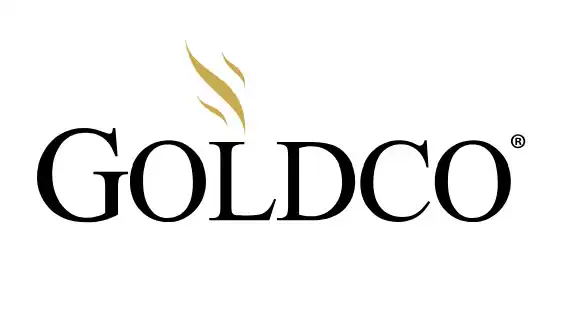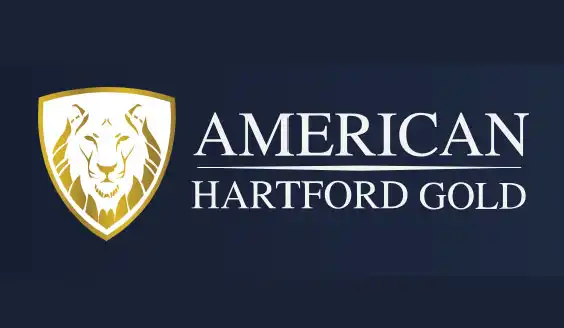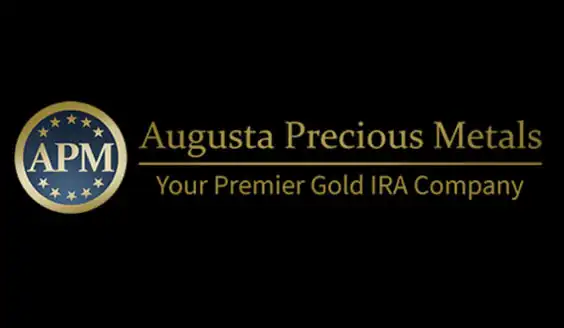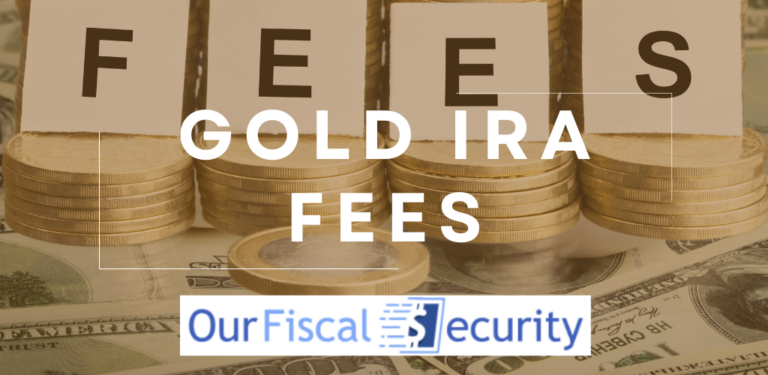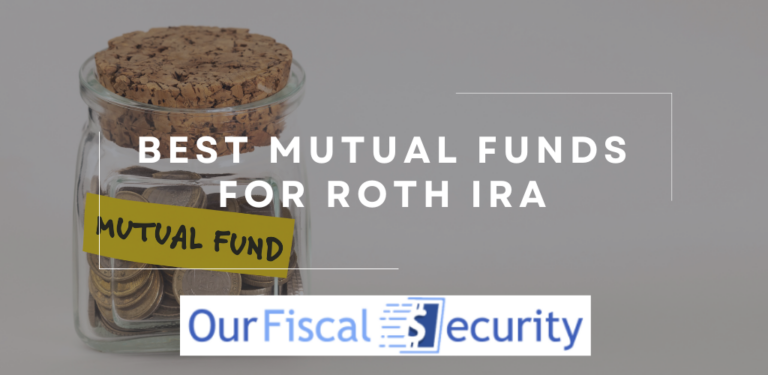Self Directed IRA Guide
In this article, I cover a few important topics such as the disadvantages of self directed ira, what does self-directed ira mean, and I even reveal the best self-directed ira custodians. An Individual retirement account commonly referred to as an IRA, which holds different types of investments and is managed by the individual who owns the account is referred to as a self-directed IRA.
The primary factor that differentiates self-directed IRAs from regular IRAs is that you have more control over it and the type of investments you would like as an account owner. You can hold investments such as precious metals (gold, palladium, silver, and platinum) and alternative assets in a self-directed IRA that you cannot hold in a regular IRA.
It is worth noting that a trustee or custodian usually administers the account, but the owner is the one who manages it directly. Hence the name ‘self-directed.’ Whenever you buy an asset, you have to communicate with your custodian so they can complete the transaction from your self-directed IRA. Usually, they will communicate once everything has been processed, but it also helps to follow up.
There are different kinds of self-directed IRA. You could either have a Roth IRA where you will be taking tax-free distributions or a traditional IRA where you will be making tax-deductible contributions. Suppose you are an investor who is well versed with alternative investment, and you are looking to diversify your portfolio in an account that is tax-advantaged. In that case, a self-directed IRA is the best option for you. You might want to consider the Joe Montana Augusta Precious Metals Company if you’re looking to setup an IRA account today.
Safeguard your retirement wealth with tax-free benefits! If you want to protect your retirement savings from economic turmoil, then request a complimentary kit today. Find out about the #1 recommended precious metals investment company today.
Understanding a Self-Directed IRA SDIRA
The kind of investments an individual’s account can hold sets apart a self-directed IRA from other types of IRA. For instance, if you have a regular IRA, you will be limited to standard securities such as mutual or exchange trade funds (ETFs), certificates of deposit, bonds, and stocks. Understanding a self-directed IRA SDIRA is essential since it will help you decide if it is the right choice for you.
On the other hand, an individual with a self-directed IRA is at liberty to invest in a diverse range of assets, which is a great way to diversify one’s portfolio and protect it from inflation. For instance, in a self-directed IRA, one can hold things like real estate, tax lien certificates, limited partnerships, private placements, commodities, and precious metals.
Note that you are not limited to the mentioned. There is a wide range of alternative investments that you can still hold in your self-directed account. Therefore, before you decide to get a self-directed IRA, you must ensure you do your due diligence.
How to Open a Self-Directed IRA
Although opening your self-directed IRA is not a daunting task, it may be slightly more challenging than opening a regular IRA. Although, note that many IRA providers only allow you to open a conventional IRA, traditional IRA or Roth IRA. The only investment options they offer are regular mutual funds or exchange trade funds, bonds, and stocks.
Before opening a self-directed account, you need to have an IRA custodian who is qualified and specializes in the kind of account you are interested in. It is worth noting that different self-directed IRA custodians offer different types of investments. Therefore, it would help to know what asset you are interested in to choose a custodian who offers that asset.
How to open a self-directed IRA can take two approaches, you can either work with a brokerage firm or work with a custodian. While many brokerages work as custodians for different types of IRAs, most popular ones do not work with self-directed IRAs, so the best option is working with a custodian.
A self-directed IRA custodian is often a company that specializes in self-directed IRAs. There are so many you can choose from, and this is why you need to do proper research, visit their websites, read testimonials, call them, and look up how long the company has been operational before you start working with them.
Listed below are steps on how to open a self-directed IRA.
Open an Account
Once you have found a custodian you would like to work with, you can proceed and open a self-directed IRA. As mentioned, the process is not complicated.
Fund the Account
Once you have opened the account, you have to fund it like you would a regular IRA. How you fund the account may differ depending on the approach you took when opening the account. For instance, if you will be financing your self-directed IRA through new contributions, you will deposit money in it like you would in a regular IRA.
Suppose you will be rolling over from your traditional IRA to your new self-directed IRA. The custodian can complete this process for you or conduct it and do the rollover yourself. The money will not be taxed either way as long as the transaction is completed within 60 days.
Lastly, you could be funding your new self-directed IRA account through a transfer from a different IRA. A transfer almost works the same way as a rollover, and often people tend to think they mean the same thing. Your custodian can also complete this process for you.
Related Reading: Why You Can’t Get a Self Directed IRA at Fidelity
Choose an Investment
Once you have funded your account, you can look for a broker from whom you will purchase your investment. It helps to let them know that they will be sending it to your custodian. Once you have selected the assets you want to buy, talk to your custodian and ask them to complete the transaction. It would be best to confirm with them when the investments you purchase will arrive at the storage location and keep the receipts, so you are up to date with your purchased assets.
Some trust companies may also work as custodians. The main difference between custodians is the investment options they may be willing to handle, so depending on the investments you would like, you have to find out if your chosen custodian takes what you would like to invest in. This means you may have to shop around and see what different custodians take before finally picking one that works for you best.
 Keep in mind that your self-directed custodian will not offer you financial advice since they are prohibited from doing so. They may provide you with all the information you need to make an informed decision, but they do not offer any financial advice. The point of having a self-directed account is, so you are in charge of making your financial decisions.
Keep in mind that your self-directed custodian will not offer you financial advice since they are prohibited from doing so. They may provide you with all the information you need to make an informed decision, but they do not offer any financial advice. The point of having a self-directed account is, so you are in charge of making your financial decisions.
This is why investment companies, banks, and traditional brokerages do not offer self-directed accounts because their job involves giving you financial advice. That is why you need to do extensive reading and research before you open a self-directed account because you will be making all the financial decisions. Suppose you need help with managing and selecting your investments. It would be best to hire a financial advisor to help you with this.
Advantages of a Self-Directed IRA
There are multiple advantages of having a self-directed IRA. Most investors will opt for this account despite some of the risks associated with them. They offer them a chance to have a greatly diversified portfolio and have higher returns.
Listed below are some advantages of a self-directed IRA.
Control
Having a self-directed account offers you more control over your financial future, unlike with a regular IRA. When you have a self-directed IRA, you are in charge of every single decision regarding your account. This means you do not only have the flexibility, but you also have the freedom to invest in what you are comfortable with and something you have extensive knowledge of.
Note that, although it is self-directed, you are not limited to relying solely on your understanding. If you need help, find a professional you can work with so they help you with your investment decisions and retirement planning. Being in control allows you to choose what suits and works best for you.
Tax Advantage
There are multiple tax advantages associated with a self-directed IRA, provided you follow all the IRS rules. As mentioned earlier, there is a Roth IRA and a traditional IRA, which both have tax advantages but different characteristics. All the appreciation, profit, and income you get from an investment you have in your self-directed account will directly return to your IRA without being taxed.

You can also use a self-directed IRA to create a tax advantage for your charity or loved ones. You can choose single or multiple beneficiaries for your self-directed IRA, and they will inherit the account after your demise. When a retirement account is passed down to a beneficiary, the remaining assets and cash are usually tax-advantaged when they are in the account.
Investment Options
A self-directed account offers you multiple options you can invest in compared to a regular IRA, where you can invest in common things like stocks, mutual funds, and bonds. You have a lot of flexibility and so much freedom to invest in whatever you would like. You can invest in alternative assets, traditional assets, or have a mix of both. Most individuals do not even realize that there is so much more they can invest in than just stocks. A self-directed IRA gives you many options like notes, real estate, precious metals, private stock, and private equity.
It is worth mentioning that the IRS prohibits individuals with self-directed IRAs from investing in specific things. This includes life insurance policies, alcoholic beverages, specific precious metals, and collectables like specific coins, stamps, antiques, artwork, and gems. You can invest in anything else you would like, provided you follow all the rules by the IRS that govern retirement plans.
Diversifies Portfolio
Having a self-directed IRA lets you have a diversified portfolio. As mentioned earlier, you can invest in just about everything you would like to when you have a self-directed IRA. Ensure that you are following all the IRS rules. Regular IRA investments are all tied to the dollar, meaning that the dollar’s value significantly impacts your investment. In case of inflation, economic crisis, or instability in the market, you will be affected considerably. This is why you need a self-directed IRA to help you diversify your portfolio.
You can choose to only invest in alternative assets or have both traditional assets and alternative assets in your self-directed IRA. This ensures that your portfolio is well-diversified, which means that your assets are protected if there is an economic crisis, and they also balance out. It is also worth noting that most alternative assets like precious metals are not tied to the dollar. Therefore, even if there is an economic crisis or inflation in the market, you are not affected.
Ability to Invest Internationally
Regular IRAs limit you to investments within your country, meaning that you are likely missing out on excellent opportunities that may be offered internationally. This is why it is essential to have a self-directed IRA since it gives you the chance to go international with your investments. It does not limit you to only investing within your country, especially provided how economies keep fluctuating. A self-directed IRA diversifies your investments by opening you up to different possibilities and opportunities. You can also prevent risks that may be related to an economic crisis.

Secured Assets
Most people often think that withdrawing their assets from their traditional IRA and making their retirement investments is more straightforward, even with the possibility of facing tax penalties. You do not have to do this. Instead, roll over your assets from your traditional IRA into a self-directed IRA.
You will still be able to have control over your assets and, you will not face any tax penalties. Your assets will stay protected since they will still be within an IRA account. Suppose you are involved in a legal battle, your assets are frozen, or you go bankrupt, your self-directed IRA cannot be touched, froze, and the government cannot intervene.
Greater Assets
With a self-directed IRA, there is a lot of potential for gradually having more excellent assets. The profit margins are also significant when you have a self-directed IRA. If it is well-diversified, your assets balance each other, and it is well-managed, it may have substantial growth. However, note that having significant profits is not in your control but the control of others.
When you use your self-directed IRA well, it can help you spot an upcoming market. Although such markets are often a risky investment, they do offer the potential for more significant benefits. A self-directed IRA can benefit you if you are a knowledgeable investor since you will easily maneuver through the investments, and you will know what works best. Being a savvy investor gives you an advantage when you open this account.
Risks of Self-Directed IRAs
Although there are multiple advantages of having a self-directed IRA, there are also some risks of self-directed IRAs. Listed below are some of the risks involved with this account.

Fraud
As mentioned earlier, self-directed IRA custodians are not allowed to give you financial advice. If you would like financial advice, hire a financial advisor. Since they cannot offer you advice, they may provide you with specific investments they have available.
Note that self-directed IRA custodians do not evaluate the legitimacy or quality of the assets in self-directed IRAs according to the securities and exchange commission. Therefore, you need to be very careful with the kind of investments you purchase before you make a decision, have facts that can back up your decision.
Your End Plan
When dealing with conventional investments like mutual funds, stocks, and bonds, it is easy to get out of them. All you will have to do is communicate with your broker and place your order to sell. How the market is doing when you sell is all that matters, so essentially the market takes care of this. However, the same does not apply to specific self-directed IRA investments.
For instance, say you own a building, and you want to sell it, there is a procedure in place you need to follow, and you will also have to find a buyer who matches the price you are asking for, meaning this will take some time. Suppose you have a traditional self-directed IRA, and you are required to begin taking distributions. In that case, the process of listing your property and waiting for a buyer can prove to be problematic.
Fees
It is worth noting the fee structure associated with self-directed IRAs are pretty complicated. For instance, some of the fees an individual has to pay, include investment bill-paying fees, annual renewal fee, first-year annual fee, and an establishment fee that you pay once. When you consider all these costs, they add up to a lot and potentially cut into your savings.
Due Diligence
You must do your due diligence if you plan to open a self-directed account, do not compromise on that. As mentioned earlier, the custodian of your self-directed IRA will not offer you any financial advice. This is why self-directed IRAs are the best option for well-informed investors because they know their way around different investments and know the best assets to help diversify their portfolios.
Self-directed IRAs are only great if you have done your due diligence. Therefore, ensure you have done extensive reading and thorough research from the custodian you are working with to the investments you would like to purchase. However, if you think that is a lot of work but you would still like to open a self-directed IRA, then it would be best to hire a financial advisor to guide you.
Suppose you are working with a financial advisor. Ensure you hire one who is knowledgeable about investments so they help you manage and purchase the assets that will be held in your self-directed IRA.
Prohibited Transactions
If you break any rule when you have a self-directed IRA, the whole account can be considered distributed to you. Simply put, this means that you will be on the line not only for a penalty but taxes as well. Therefore, it would be best if you were up to date with all the different rules and clearly understand how they apply to each asset you hold in your account.
Following the rules will help you avoid making any mistakes that will have you on the line for taxes. Always apply the do not ‘self-deal’ rule when it comes to your self-directed IRA. Self-dealing means that you should not sell the property to your IRA, borrow money from it, or any interaction whatsoever.
For instance, suppose you own a rental property, and it needs plumbing. Instead of getting a plumber, you decide to fix it yourself so you can save money. Doing this is against the rules, and because the IRS prohibits this, when they find out your account will be considered distributed to you, meaning you will have to pay taxes.
Lack of Liquidity
People often resort to opening a self-directed IRA because it allows them to invest in a wide range of investments. However, they do not always factor in the fact that most of the assets they are purchasing and investing in are illiquid. Therefore, should you run into an emergency that requires immediate cash, likely, you will not be able to get money from your IRA. This is because you will first need to find a buyer to sell your investment to.
Now that you know what the advantages and risks are of setting up an IRA account, you should look further into some of the companies that offer IRA services. You also need to ask yourself questions about these companies like Goldco, Augusta Precious Metals, and American Hartford. For example, I’d be asking myself, “How does Goldco compare with other gold IRA companies?”
Self Directed IRA vs. a Regular IRA
Self Directed IRA vs. a Regular IRA which should you go for? A self-directed IRA, is a type of IRA account that an individual manages, and it holds different types of investment. A regular IRA is a type of savings account that is tax-deferred and is opened with the intention that it will be a source of income once an individual retires.
Usually, the account owner makes any contributions to an IRA account, but in the case of a 401k, the employer is usually the one sending the contributions. In a regular IRA, the funds in the account are often held by a financial institution that invests them in things like mutual funds, stocks, or bonds, meaning the IRA owner has no control over the account.

Therefore, one of the main differences between a self-directed IRA and a regular IRA is that individuals are in complete control of their investments with the former. The owner has zero to no control over what the funds in their account should be invested in with the latter.
The funds in a traditional IRA are usually managed by a brokerage house in charge of investing the funds. On the other hand, a self-directed IRA can either be a Roth IRA or a traditional IRA. The individual owning the account makes all the investment decisions through the account’s custodian. This gives the owner of the account a lot of flexibility when choosing what to invest in.
Setting up a self-directed IRA can be more challenging than setting up a traditional IRA. However, many investors prefer choosing a self-directed IRA despite the work because they find the benefits associated with this account worth the trouble.
It is worth noting that IRS rules apply to all types of IRA accounts. This means that all IRA accounts cannot carry out specific transactions, whether the account is a regular IRA or a self-directed IRA. For instance, any individual with an IRA account is prohibited from self-dealing and taking loans against their fund. Participating in any business transactions or having family members participate in a business transaction related to their IRA is a violation of these rules.
Both a regular IRA and a self-directed IRA have their advantages and disadvantages. Therefore, it is up to you to decide on what account suits your needs best. You can consider the key things when determining what account you want, including control, market risk, and investment options. If you would like to have more control over your IRA, want more investment options to choose from, and do not want to risk the uncertainties in the market, then a self-directed IRA will be the best choice for you.
A regular IRA may suffice for a lot of retirement savers. There is a wide range of common assets that you can invest in with a traditional IRA. These investments can also provide you with enough diversity in your portfolio. Traditional IRAs also offer the same tax benefits that self-directed IRAs offer, and they are easy and quick to open. Regular IRAs do not have a lot of the excessive IRS rules that are associated with self-directed IRAs. You will also not have to go through the trouble of finding a custodian to set up a self-directed IRA for you.
As mentioned earlier, a self-directed IRA opens up a wide range of possible investments for you. Other than investing in regular investments like mutual funds, bonds, and stocks, you have the option of investing in more assets that are not part of a standard portfolio. You can invest in just about anything, except for a couple of things that the IRS forbids. It is essential to find the proper custodian before you create a self-directed IRA. Ensure that you do thorough research before you get a self-directed IRA, so you make a well-informed decision when deciding if it is the right choice for you.
|
5.0
|
4.7
|
4.5
|



